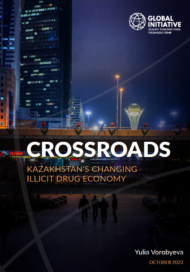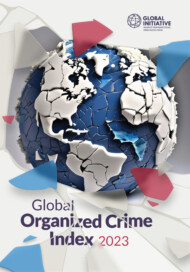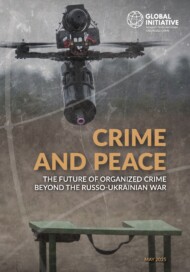Posted on 12 Oct 2023
Kazakhstan has long been an important transit corridor for drugs, being strategically situated between drug-producing areas in South Asia (mainly Afghanistan) and drug consumption markets in Russia and Europe. Trafficking of Afghan opiates on the so-called ‘northern route’ generates an estimated US$1.1–2.1 billion. Afghan-produced cannabis resin (‘hashish’) also flows along the northern route to Russia or Western Europe via Russia.
A complex array of actors coordinate the drug trade through Central Asia. Arguably the most significant actors in opiate trafficking (with loads measured in tonnes) are Turkey-based Kurdish organizations, who undertake all the necessary arrangements and maintain regular contact between members in transit countries and the main coordinators. Tajiks are arguably the predominate nationality in organizing mid-level (loads of 100–200 kilograms) wholesale drug trafficking (mostly opiates) via Tajikistan territory and when it comes to the supply of the Russian heroin market, with linguistic ties and geographical proximity facilitating flows from Afghanistan. Many different paths and modus ope-randi are used, with Uzbekistan emerging in recent years as a key country in this space, although the Tajikistan–Kyrgyzstan pathway continues to see high volumes of drugs passing through to Kazakhstan.
As well as being a transit country, Kazakhstan is also a consumer market for cannabis. Like several other countries in the region, since approximately 2015 Kazakhstan has also recently seen an increase in consumption of synthetic drugs. More recently, the country has emerged as a domestic producer of synthetic drugs in its own right. One of the major criminal groups active in Central Asia is Khimprom, a criminal network that has specialized in the distribution of synthetic drugs through the internet mainly in Russia, Ukraine and Belarus since about 2014.




